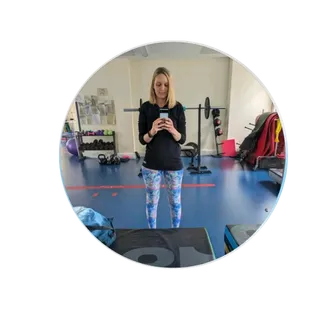Helping You Work With Your Brain, Not Against It
ADHD coaching for real life, whether you’re newly diagnosed, feeling overwhelmed, or just trying to hold it all together.
1:1 support, live group sessions, and practical tools that actually fit how your brain works.
New affordable online coaching launching in

Helping ADHD Minds Find Their Own Way
I’m Fraser, an ADHD coach, father, and former corporate leader who didn’t realise I had ADHD until I was 43.
Like many late-diagnosed adults, I spent years thinking I just wasn’t good enough. I pushed myself hard, burnt out often, and masked my struggles to keep up with a world that didn’t quite fit.
When I finally got diagnosed, everything changed. I stopped blaming myself and started building a life that worked for my brain. Now I help others do the same.
I work with adults who feel overwhelmed, newly diagnosed, or stuck, offering practical strategies, honest conversations, and a place where they don’t have to explain themselves.
Whether it’s 1-to-1 coaching or a structured group programme, the goal is always the same:
To help you feel understood, and to help you move forward.
Does any of this
SOUND FAMILIAR?
You always feel behind, even when you’re working flat out.
There’s a constant mental to-do list running in the background, and even small tasks feel like a mountain.
You’ve been called lazy, disorganised, or too sensitive.
But deep down, you know you’re trying harder than most people realise.
You procrastinate, overthink, and crash hard when you finally stop.
It’s not just time management — it’s emotional exhaustion, decision fatigue, and never feeling like you’re doing enough.
You’ve Googled ‘Do I have ADHD?’ more than once.
Maybe you’ve been diagnosed. Maybe not. But you know something isn’t working, and you’re ready for support that actually makes sense for your brain.

Our Mission
Helping ADHD Adults Feel Less Alone — and More in Control
Whether you're newly diagnosed or have been masking for years, our mission is simple:
Help you understand your brain, stop the spiral of shame, and build a life that actually fits.
How I Can Help
1:1 ADHD
Coaching
Get tailored support with practical tools, calm accountability, and a coach who gets how your brain works.
Perfect if you're ready for personalised help, but not sure where to start.
6-Week ADHD
Group Programme
Live coaching, structure, and a toolkit that actually fits your brain — all in a space where you realise you're not the only one.
Ideal if you want guidance and to hear from others like you.
Free ADHD
Strengths Report
Not ready for coaching? Start with a personalised analysis based on your ADHD traits — and see what’s actually working in your brain.
A zero-pressure way to get insight, hope, and clarity.
What others are saying

"Fraser is awesome"
Fraser is awesome and I enjoyed working with him. He taught me so much and in a way that makes sense to me. He's given me a new found confidence.


"My life changed forever"
He taught me so much and in a way that makes sense to me. He's given me a new found confidence.


"Life was SO hard"
Fraser helped me to turn the waltzers into teacups and calm the chaos, I'm still spinning and dizzy at times but now I get to enjoy the views around me!

Fraser & Cubic write a blog to help you with your ADHD if you aren't ready to reach out for help just yet.

Benefits in an Adult ADHD Diagnosis and Why It Is Important

Why getting diagnosed as an adult matters
When I was diagnosed with adult ADHD at 43, it wasn’t just my life that changed. My whole family felt the impact. An ADHD diagnosis is never just about one person, because attention deficit hyperactivity disorder is a neurodevelopmental disorder that runs in families. If you’ve got it, there’s a fair chance your siblings, children, or nieces and nephews might too.
When I finally got my formal diagnosis, both my sister Lindsay and my brother Ross went through their own ADHD assessment. The difference in their lives has been incredible. My kids also benefit because they’ve got a parent who understands ADHD symptoms and how to support them without the shame and confusion that came with growing up undiagnosed. Even my nieces and nephews are being raised in a more supportive environment because as a family, we finally understand what’s going on.
This blog is for anyone wondering if the effort of pursuing a timely diagnosis is worth it. Spoiler: it is. But there’s also more to the story than waiting for an assessment. Let’s dig in.
Who I was before diagnosis

Before my diagnosis, my adult life looked very different. If you’d seen me back then, and you probably can when I find a picture to put with this post, you’d probably have found me drunk on a weeknight out, trying to laugh off the exhaustion and chaos I carried around. On the outside, I looked like I was holding it together, good job, busy social life, but underneath, I was drowning.
I had no idea I was showing so many signs of ADHD. I just thought I had terrible willpower. My impulsive behaviour meant I was always in financial trouble, my low self-esteem made me overcompensate at work, and I was constantly battling behavioural problems in relationships.
What I didn’t realise then was that mental health conditions like anxiety and depression often come hand in hand with ADHD. Untreated, they spiral into major problems. Looking back now, I can see how close I was to the long term consequences of late diagnosis.
When I finally went through a comprehensive diagnostic assessment, everything made sense. It wasn’t weakness, it was ADHD. That realisation changed my whole perspective.
Getting help introduced me to ADHD medicine. Trying stimulant medication was a huge shift. Like any ADHD medications, it came with potential side effects such as changes in blood pressure and heart rate, and I had to weigh the adverse effects carefully. But it also opened the door to effective treatment, combining coaching, cognitive-behavioural therapy, and personalised treatment plans.
Medication is always a personal choice. There are various treatment options and no single path that works for everyone. For me, looking back now and seeing the prevalence of ADHD among my family members and extended family made it even clearer that a definitive diagnosis of ADHD and appropriate treatment were the way forward.
It’s why I believe so strongly in early intervention. If you catch ADHD early, whether through an early diagnosis of ADHD in younger children or spotting a late diagnosis in adults, you prevent so many of the negative aspects and open the door to good options.
The difference between untreated ADHD and effective treatment is the difference between numbing yourself with alcohol on a Tuesday night and actually enjoying your life with clarity.
Recognising the symptoms of ADHD
Many adults live with undiagnosed ADHD, often because the symptoms of ADHD in adulthood don’t look like the stereotypical hyperactive child bouncing off the classroom walls. Instead, they might show up as poor time management, impulsive behaviour, difficulties in holding down jobs, or always having a hard time focusing.
A person might struggle to get through daily tasks, have trouble with social skills, or feel that no matter how hard they try, they can’t quite make a person concentrate long enough to finish what they start. Behavioural problems that were obvious in school often turn into underperformance or burnout at work.
The American Psychiatric Association lists the diagnostic criteria for ADHD in the Statistical Manual of Mental Disorders, Fifth Edition (DSM-5). These include persistent patterns of inattention and hyperactivity-impulsivity that interfere with daily functioning.
It’s also important to recognise that younger children and older children present differently. What looks like endless fidgeting in one child might turn into zoning out in another. By the time we reach adulthood, the picture can be even more complex. That’s why understanding the possible causes, family history, and similar symptoms is so important when working with a healthcare provider.

Why the first step isn’t always diagnosis
You’ll often hear that getting a diagnosis is the first step. And in an ideal world, that would be true. But the reality is, in the UK and many other places, the waiting lists are painfully long. For some, it’s years, not months. And because of “ADHD waiting mode” it can be a killer for your confidence and life as you sit there and say 'everything will be fine when this happens!
If you can afford private assessments, great, but not everyone is fortunate enough to have the money for that. So here’s my view: the first step isn’t always diagnosis. The first step is getting help for your challenges. That might mean coaching, learning strategies to manage daily life, or making small lifestyle changes that improve your quality of life now, while you wait.
The truth is, people without ADHD don’t sit around wondering if they have it. So if you’ve had the courage to say “I think I do”, that is incredibly brave. It means you’re ready to try new approaches. And the strategies that help people with ADHD, building routines, practising cognitive-behavioural therapy, breaking down goals into smaller steps, asking for additional time where needed, will help even before you have a diagnosis of attention-deficit formally on paper.
My medication journey
More recently, I’ve made a change from Elvanse to Concerta. I wasn’t sure what to expect, but the difference in my mood has been noticeable. I feel more even, calmer, and less prone to spiralling. The Elvanse gave me the ability to function but the Concerta has given me that along with a bit more of the Fun Fraze who makes insanely stupid Dad Jokes just the make the kids cringe
Here’s something that often gets overlooked: the medication that works for you is more likely to work for your children too, because of the genetic link in ADHD. That means my own children will have an easier journey to finding the right medication if they need it. Watching that ripple effect across families is powerful.
Of course, ADHD treatment isn’t just about tablets. Behavioural therapy, cognitive-behavioural therapy, or lifestyle changes like better sleep, a balanced diet, and movement all play a role. For many people, the best results come from combining them. As with all things ADHD, it’s about finding what works for your unique brain.

The ripple effect through my family
One of the best ways to understand the ADHD benefit of a diagnosis is to see it through my family.
My sister Lindsay is a teacher responsible for alternative education for hundreds of kids. Since her diagnosis, she reports feeling calmer, more focused, and far more able to manage her demanding role. The result? She’s not only changed her own daily functioning, she’s helping hundreds of young people in education every single day. That’s the ripple effect — one diagnosis touching lives far beyond our own home.
My brother Ross had a tougher time. He swapped universities multiple times, never feeling like he could get traction. Later, he spent years in a job where he was overlooked, despite his talent. After his diagnosis, everything shifted. He’s now part of a multinational start-up, with shares and a clear sense of direction. His wife was also diagnosed off the back of his journey. She now works in mental health supporting people with neurodivergence, making a difference in ways that neither of them could have imagined a few years ago.
This is the power of diagnosis. It stops the cycle of self-blame and confusion, and it builds confidence to take opportunities. It doesn’t just help one individual, it improves daily life for significant others, colleagues, and future generations.
All this without even mentioning my nieces and nephews who are now diagnosed nice and early to get the support they need.

The risks of Untreated ADHD
Without diagnosis or support, ADHD can lead to psychiatric disorders like conduct disorder, oppositional defiant disorder, or co-existing mental health disorders. Many adults with untreated ADHD find themselves battling anxiety disorders, depression, or unhealthy coping mechanisms like alcohol or drugs.
Research studies show that adults with ADHD are at greater risk of substance use disorders, poor work outcomes, and broken relationships. Left unchecked, impulsive behaviour can lead to financial problems, brain injury from accidents, and chronic burnout.
Did you know they estimate that 80% of people in jail have ADHD? Why do you think that might be? Always looking for the dopamine means riskier and riskier behaviour and that can lead to law breaking and then jail. Imagine if these adults had been diagnosed as kids and had the right support, what would our country and world look like?
These are the stakes. And they’re why timely intervention, whether through ADHD treatment, coaching, or therapy, is so important.
Finding support while you wait
If you’re stuck in waiting mode, don’t let that stop you. There are additional resources out there, from support groups to books, podcasts, and online communities. Seeking medical advice is important, but so is building a support network of people who understand what you’re going through.
Simple changes can help: asking for additional time at work or in exams, talking openly with family about your family history of ADHD, or finding good options for therapy and coaching while you wait.
The important part is to remember this: you don’t need to suffer in silence. There are ways to improve your quality of life long before a letter of diagnosis lands on your doormat.
Final thoughts
If you’re sitting on the fence about pursuing an ADHD assessment, I can tell you from personal and professional experience that it is worth it. Getting that formal diagnosis is life-changing. But remember, the first step doesn’t have to be diagnosis. The first step can simply be saying, “I’m ready to try something different.”
The potential benefits of a diagnosis extend to your siblings, your kids, nieces, nephews and beyond. It’s a ripple effect that touches everyone around you.
Whether you’re waiting for an appointment, considering stimulant medicines, or just exploring what strategies might help, know this: every step forward matters.
Can I help you?

If you think you or someone you love may have ADHD, I can help.
Start with my free ADHD Insight Report quiz, which gives you personalised feedback and strategies to try straight away.
Explore my 1-to-1 ADHD coaching, where I work with you to build systems that fit your brain and improve your daily life.
Or join my 6-week ADHD course, a more affordable way to understand ADHD, get practical tools, and hear from others like you.
Whichever option feels right, know this: you don’t have to do it alone. I write these blogs and coach because I care. Every person with ADHD deserves support, and that includes you.
STILL NOT SURE?
Frequently Asked Questions
Do I need a formal ADHD diagnosis to join or get coaching?
Nope. Many people I work with are still figuring it out or self-identify based on lived experience. If you resonate with what you’ve read, you’re welcome here.
What’s the difference between 1:1 coaching and the group programme?
1:1 coaching gives you personalised support, we focus completely on your life, goals, and challenges.
The 6-week group programme gives you live guidance alongside others, so you hear real examples and realise you’re not the only one.
I’m not sure what I need yet. Where should I start?
That’s totally normal. The best starting point for most people is the free ADHD Strengths Report. It gives you insight without pressure, and from there, you can decide if coaching or the course feels right.
Is this like therapy?
No, coaching is future-focused and practical. I’m not a therapist, and I don’t work with severe mental health distress. But I do work with people who feel stuck, lost, overwhelmed, or unsure how to manage day-to-day life with ADHD. If we hit something therapy-related, I’ll help you find the right support.
What if I miss a live session in the group programme?
It happens! You'll still get the tools and resources from that week, and I’ll send a recap. This programme is built with ADHD in mind, so flexibility is baked in.
Can I do both the group and 1:1 coaching?
Absolutely. Many people start in the group to get foundational tools and then move into 1:1 for deeper support. Or vice versa. There’s no wrong order, just what works for you.
How much does it cost?
Group Programme: £200 for the full 6 weeks
1:1 Coaching: £100 per session
Free ADHD Strengths Report: £0 — it’s truly free, no catch
What if I’m not ready to commit yet?
That’s okay. Sign up for the free report, or drop me a message with your questions, follow me on social. No pressure. No guilt. Just support when you’re ready.
Reach Out, No Pressure, No Stress
Whether you're curious about coaching, unsure where to start, or just want to ask a question — I'm happy to hear from you. There's no pressure to sign up or commit. Just send a message and I’ll get back to you soon.
07904 711781

Follow Us
Follow Us
© Copyright 2025. Square Squirrel ADHD Coaching. Powered by The Growth Nest -
